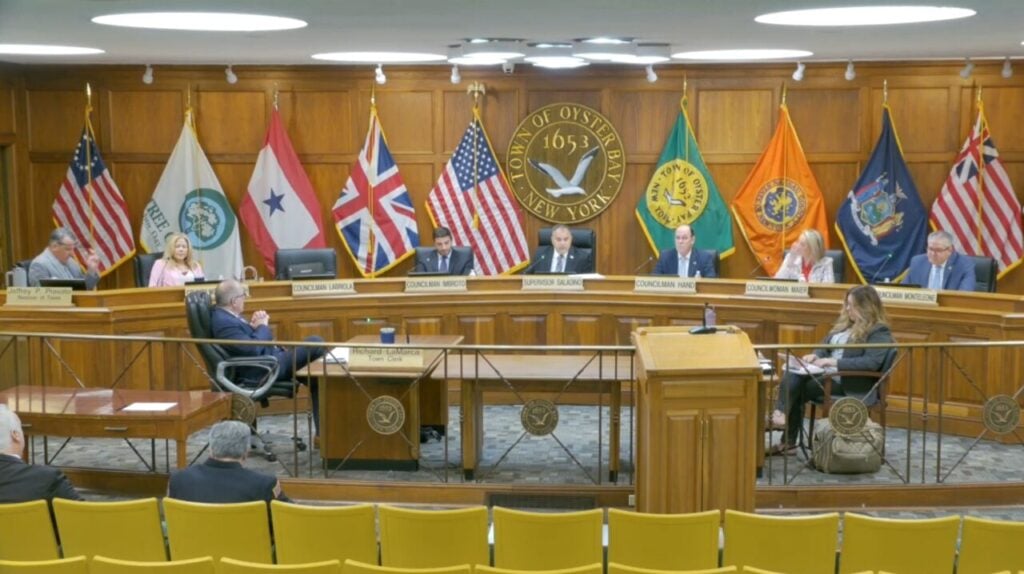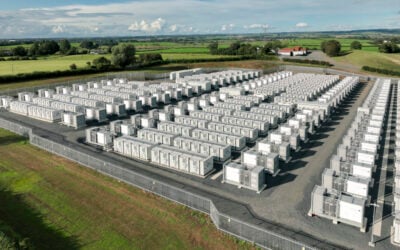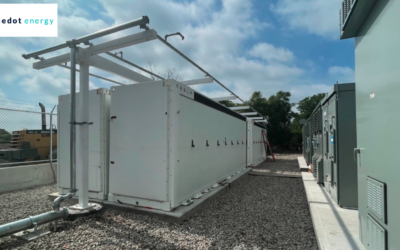
The development of large-scale battery storage projects continues to face opposition from local communities in parts of New York, US.
Vito Fossella, the Staten Island Borough President (BP), announced on Friday (24 April) that his office will file a lawsuit to prevent the development of battery energy storage system (BESS) projects in his jurisdiction.
On the same day, the Town Board of Oyster Bay on Long Island voted at a special meeting to extend a moratorium on BESS facility development.
The local authority actions have come just a few days after Energy-Storage.news published a Guest Blog from Brian Cashion, director of engineering at fire suppression systems manufacturer Firetrace International.
Try Premium for just $1
- Full premium access for the first month at only $1
- Converts to an annual rate after 30 days unless cancelled
- Cancel anytime during the trial period
Premium Benefits
- Expert industry analysis and interviews
- Digital access to PV Tech Power journal
- Exclusive event discounts
Or get the full Premium subscription right away
Or continue reading this article for free
Cashion said that although there is rightly a lot of concern in the renewable energy and energy storage industries over the policy direction the US is taking at federal level, at present, it is local opposition that presents the biggest challenge for battery storage developers.
Cashion wrote that opposition to BESS has grown despite its “impressive safety record,” which sees roughly one fire for every 35GW of installations worldwide, and the significant benefits battery storage can bring to local communities, including “lower electricity bills, cleaner air and more reliable power.”
The moves also come just as the New York State Energy Research and Development Agency (NYSERDA) prepares to launch the Index Storage Credit, a major state procurement mechanism for large-scale, aka ‘bulk’, energy storage facilities. New York State has a 6GW target for cumulative energy storage installations by 2030, half of which will comprise bulk storage, which the state defines as systems over 5MW and connected to the electricity grid.
Staten Island Borough President to file lawsuit
In an outdoor press conference live streamed to his official Facebook page, Fossella said he would address a “very important topic and something that could affect the livelihoods of almost everybody on Staten Island.”
“We have tried for years to do everything we can to prevent them from being located next to residential areas,” the BP said, claiming that New York City authorities had, a number of years ago, allowed BESS facilities to be sited in some cases less than 20 feet from the front doors of houses.
Noting that evacuation orders have been put in place in cases where battery fires have spread, because of the hazardous materials, Fossella said that BESS projects “tend to be in the middle of nowhere, in part because they’re so dangerous if they catch fire.”
Staten Island is slated to get more than 50% of the city’s large-scale BESS facilities despite only being home to 6% of the population, which Fossella said was due to the “convenience and cost” from the standpoint of utilities.
The Borough will go to court this week to present its lawsuit against the city authorities, according to the BP. He gave the example of proposed statutes in California that would require a minimum distance between BESS facilities and residential areas of almost half a mile.
Fossella was joined by attorney Lou Gelormino, who claimed battery storage was the number one issue people asked him about in recent months and said he would represent the Borough President’s case.
Both men said the potential impacts of evacuations and damage to neighbourhoods in the event of a fire presented an unbalanced risk for the people of Staten Island.
“It’s just a cost and a risk, and there’s no benefit,” Fossella said.
Long Island town extends BESS moratorium
The Town of Oyster Bay, meanwhile, implemented an initial six-month moratorium on BESS development in April 2024, which was extended for a further six months in October.
Following a public hearing on 8 April, the six members of the Town Board voted unanimously to adopt a law extending the ban for another six months at its special meeting.
A letter from representatives at local volunteer fire service Glenwood H&L read out at the meeting recommended “extending the moratorium to further study this technology,” claiming that fires could cause loss of life and irreversible harm to the local environment.
A board member said that fire services in other neighbourhoods had “echoed these same concerns.”
Due to the difficulty of extinguishing lithium battery fires, the industry best practice is “Let it Burn,” allowing affected BESS units to burn out until all fuel is consumed. Town Supervisor Joseph Saladino claimed he had heard that this can release toxic gases into the atmosphere.
While it is true that Let it Burn has become a recommended best practice, BESS solutions from leading companies are designed so that any fire caused is contained to a single unit and does not propagate to other BESS units, other equipment onsite or to the environment.
A growing number of BESS technology providers are conducting Large-Scale Fire Testing (LSFT) in which a single unit is set on fire with all fire suppression equipment deactivated and allowed to burn, assessing whether propagation, i.e., the spread of fire, does occur. While that has so far been conducted on a voluntary basis, the forthcoming 2026 edition of the National Fire Protection Association’s standard for large-scale energy storage systems, NFPA 855, will make LSFT mandatory.
Work is underway to update Fire Code of New York State
In an Energy-Storage.news webinar broadcast earlier this month, Doreen Harris, CEO and president of sponsor NYSERDA discussed the urgent need for energy storage facilities in New York, while NYSERDA VP for large-scale renewables Georges Sassine explained how the Index Storage Credit tender and revenue underwriting programme will work.
Harris said that New York has been successful in implementing programmes to support the growth of renewable generation, including the country’s biggest community solar market through NYSERDA’s New York Sun programme.
“But of course, we know that we need to ensure the reliable resilient grid of the future and that is why we consider energy storage a very necessary complement to that renewable buildout and are thrilled here in 2025 to be implementing programmes to scale energy storage in a similar manner,” Harris said.
Meanwhile, it is a “reasonable expectation” that the state’s demand for electricity could roughly double by the middle of this century.
“Safety and fire safety specifically is a major point for us as we’re deploying more storage in the state,” Sassines said during the webinar’s audience Q&A session.
Work is currently ongoing to update New York’s Fire Code through the Inter-Agency Fire Safety Working Group, convened by state governor Kathy Hochul in 2023, to identify and mitigate potential risks posed by energy storage technologies.
The Working Group has made 15 recommendations for Fire Code updates and will host a webinar on 7 May, ‘Deploying safe lithium-ion energy storage in your community.’





